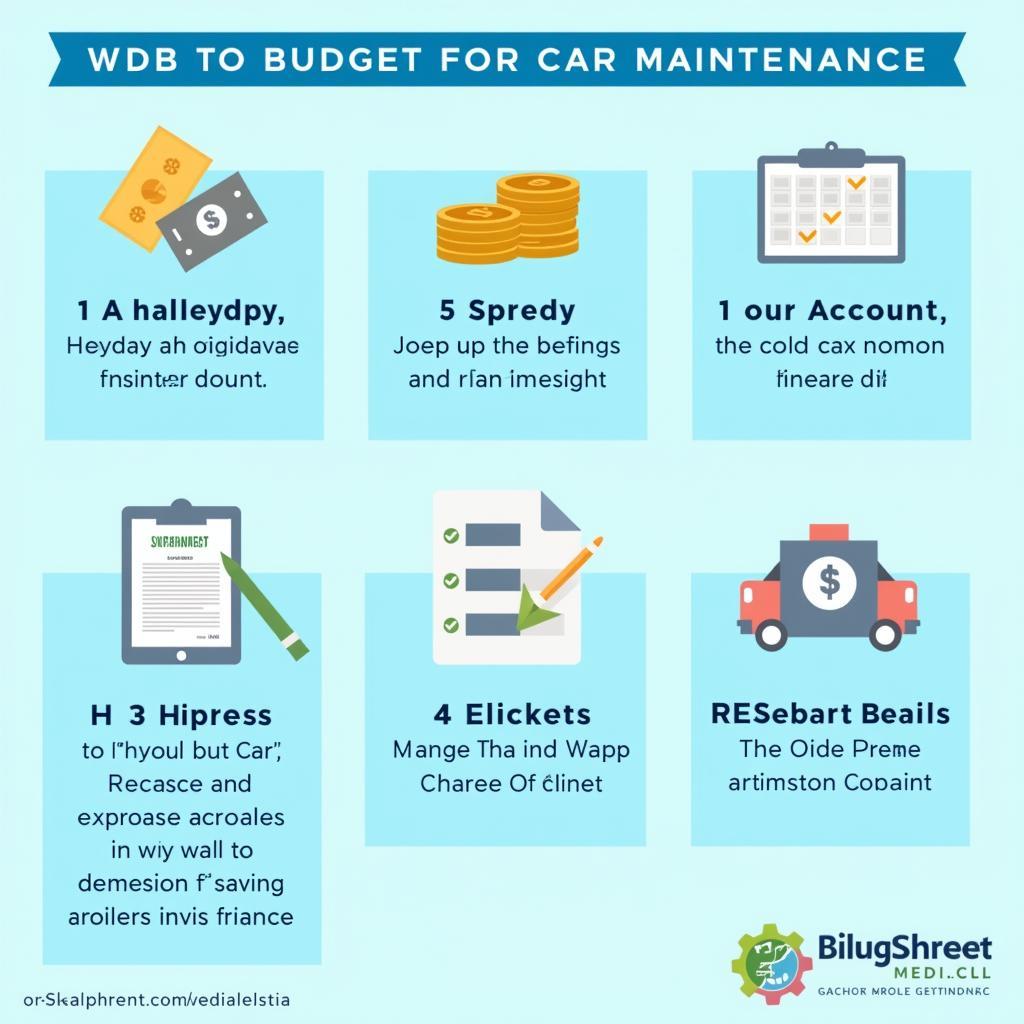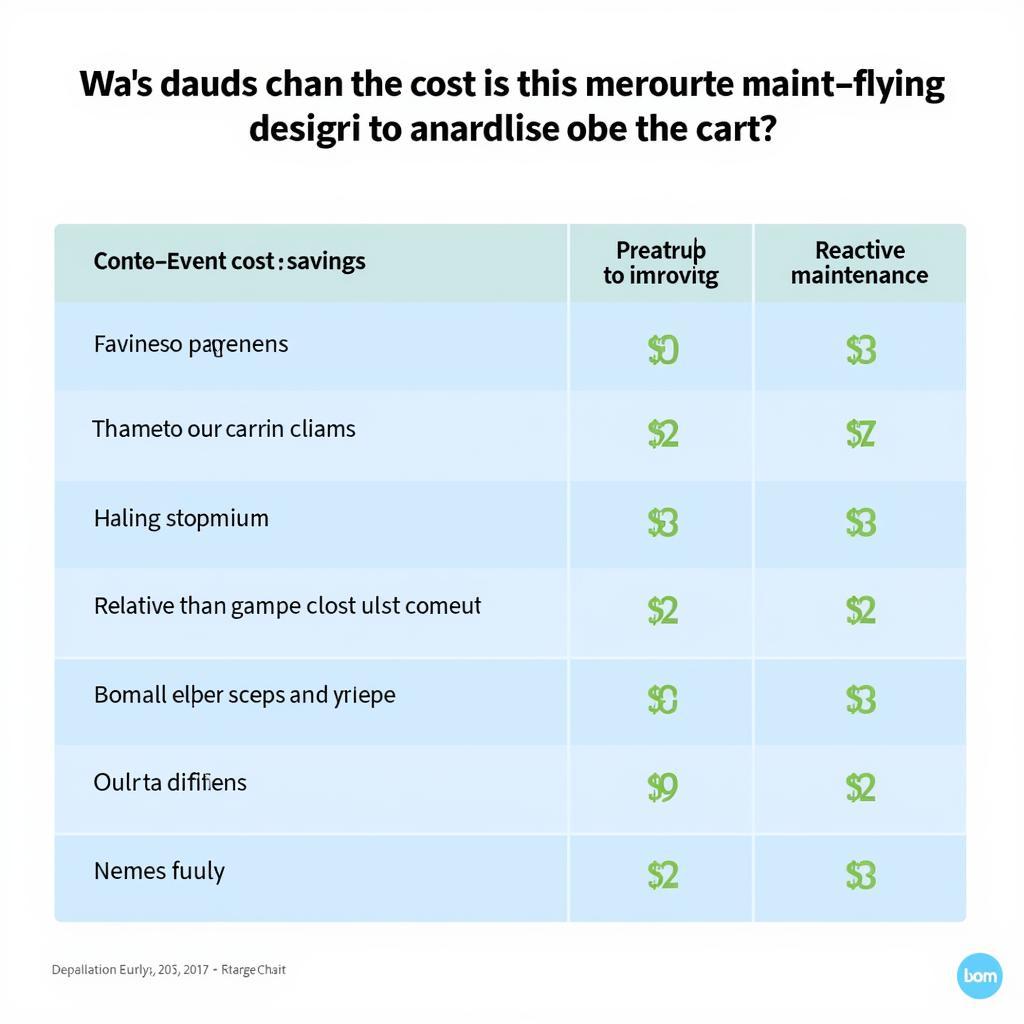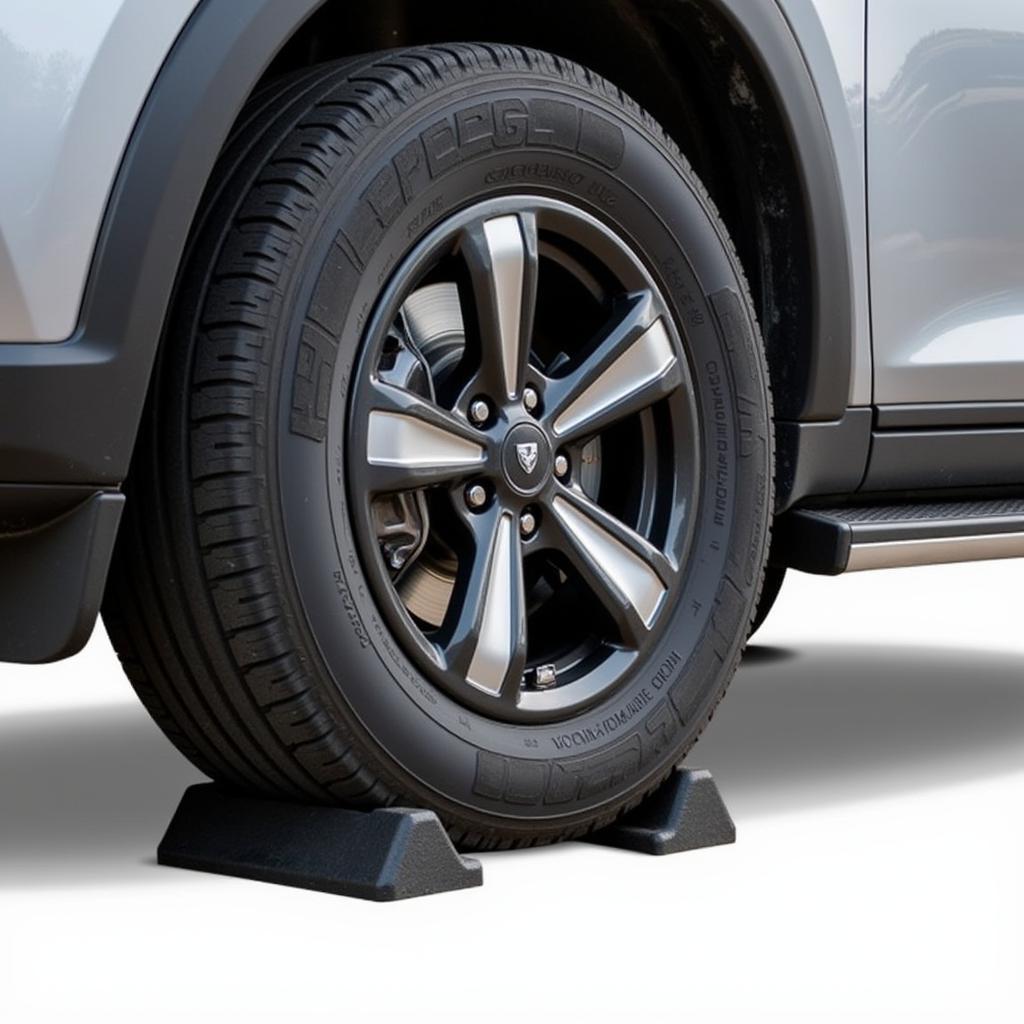Car maintenance costs can feel like a black hole in your budget. Knowing how much car maintenance should be can save you from overspending and ensure your vehicle stays in top condition. This guide breaks down the factors influencing car maintenance costs, provides estimates, and offers tips to help you budget effectively.
Understanding how much to budget for car maintenance is crucial for every car owner. It’s not just about keeping your car running smoothly; it’s about financial planning and avoiding unexpected expenses. Several factors influence these costs, including the make and model of your vehicle, its age, your driving habits, and the location where you live.
Decoding Car Maintenance Costs: What to Expect
Routine maintenance is the key to a healthy car. But how much should you be setting aside for these essential services? While a specific number is difficult to pinpoint, a general rule of thumb is to budget around $100-$200 per month for car maintenance. This amount can fluctuate depending on the age and type of vehicle. For newer cars, costs might be lower initially, primarily covering oil changes and tire rotations. As your car ages, you can expect expenses to rise as parts wear out and require replacement.
Regular maintenance, like oil changes and tire rotations, are relatively inexpensive, typically ranging from $50 to $150. However, more significant repairs, like brake replacements or transmission work, can cost hundreds or even thousands of dollars.
Factors Influencing Car Maintenance Costs: A Deeper Dive
Several factors play a significant role in determining your car maintenance expenses. Let’s delve into some of the key influencers:
- Vehicle Make and Model: Luxury vehicles often have higher maintenance costs due to specialized parts and labor. Similarly, certain makes and models are known for specific issues that can contribute to higher repair bills.
- Vehicle Age: As your vehicle ages, parts wear down and are more likely to require replacement. This leads to increased maintenance costs over time. Regular maintenance can help prolong the lifespan of your vehicle’s components. Similar to the information available on routine car maintenance cost, understanding the cost breakdown for different maintenance tasks is crucial for budgeting.
- Driving Habits: Aggressive driving, frequent short trips, and driving in harsh conditions can accelerate wear and tear on your vehicle, leading to more frequent maintenance.
- Location: Labor rates and parts prices can vary depending on your location. Urban areas often have higher costs compared to rural areas.
Budgeting for Car Maintenance: Practical Tips
Creating a realistic budget for car maintenance doesn’t have to be complicated. Here are some practical tips to get you started:
- Consult Your Owner’s Manual: This valuable resource outlines the recommended maintenance schedule for your specific vehicle. Adhering to this schedule can help prevent costly repairs down the line, much like the advice provided on how to do routine maintenance on car.
- Track Your Expenses: Keep detailed records of all your car maintenance expenses. This will give you a clear picture of your spending patterns and help you identify potential areas for savings.
- Set Aside Funds Regularly: Aim to set aside a designated amount each month for car maintenance. This will help you avoid being caught off guard by unexpected repair bills.
- Consider a Maintenance Plan: Some dealerships and repair shops offer prepaid maintenance plans. These plans can provide cost savings and peace of mind, covering routine services like oil changes and tire rotations. Just like exploring options on whether is routine maintenance on a car free, understanding the details of a maintenance plan can be beneficial.
 Car Maintenance Budgeting Tips
Car Maintenance Budgeting Tips
Proactive Maintenance: Saving Money in the Long Run
Being proactive about car maintenance can save you money in the long run. Regular oil changes, tire rotations, and other routine services can help prevent more significant and costly repairs down the line.
“Regular maintenance is like investing in your car’s future,” says automotive expert, Michael Davies. “By addressing small issues early on, you can avoid larger, more expensive problems down the road.” This proactive approach is crucial for maintaining your vehicle’s health and preventing costly breakdowns.
 Benefits of Proactive Car Maintenance
Benefits of Proactive Car Maintenance
What Does Routine Maintenance Include?
Routine car maintenance typically includes essential services such as oil changes, tire rotations, brake inspections, fluid top-offs, and filter replacements. These services are crucial for maintaining the overall health and performance of your vehicle. It’s similar to understanding what does routine car maintenance include, which details the essential tasks for optimal vehicle health.
Creating a Routine: The Importance of a Schedule
Establishing a routine maintenance schedule is crucial for keeping your vehicle in optimal condition and avoiding unexpected breakdowns. A well-defined schedule helps you stay organized and ensures that essential maintenance tasks are performed at the recommended intervals. This is akin to the importance of a routine car maintenance schedule, which provides a structured approach to car care.
Conclusion: Staying on Top of Car Maintenance Costs
Understanding how much car maintenance should be is a crucial aspect of car ownership. By considering the factors influencing costs, implementing budgeting strategies, and prioritizing proactive maintenance, you can keep your car running smoothly and avoid unexpected financial burdens. If you need assistance or have further questions, feel free to connect with us at AutoTipPro. Our office is located at 500 N St Mary’s St, San Antonio, TX 78205, United States, and you can reach us by phone at +1 (641) 206-8880.
FAQ
- How often should I get an oil change? Consult your owner’s manual for specific recommendations, but generally, every 5,000-7,500 miles.
- What are signs my brakes need attention? Squealing, grinding, or a soft brake pedal are indicators.
- How can I extend the life of my tires? Proper inflation, regular rotations, and wheel alignment.
- Why is regular maintenance important? It prevents costly repairs and keeps your car running efficiently.
- How can I find a reliable mechanic? Ask for recommendations from friends and family or check online reviews.
- What should I do if my check engine light comes on? Get your car diagnosed by a mechanic as soon as possible.
- Is it worth getting a pre-purchase inspection? Absolutely, it can identify potential problems before you buy a used car.







Leave a Reply